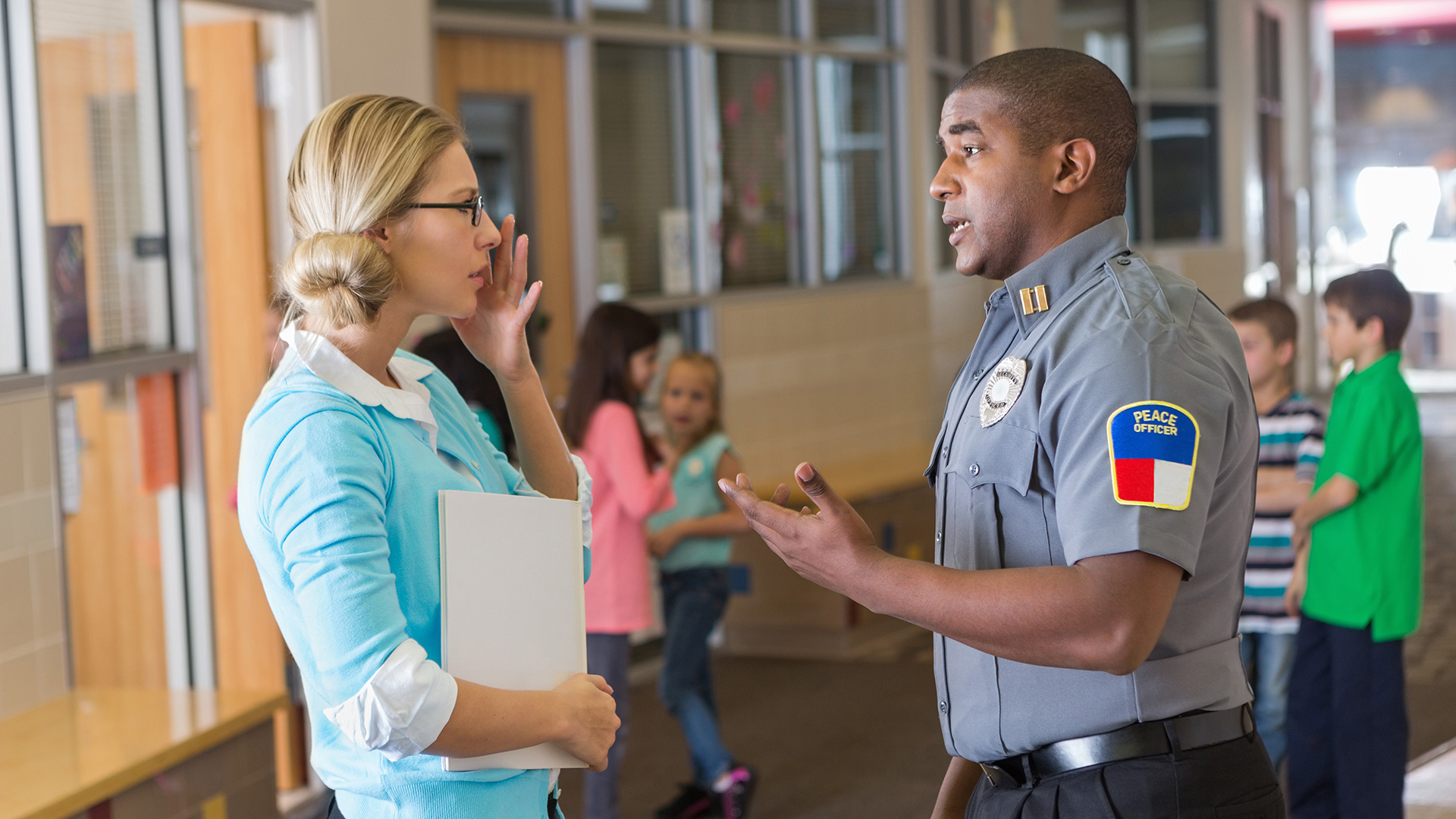
The Virginia legislature has drafted a bill that would require every school to have at least one full-time school police officer on duty at all times to boost security and calm parents’ fears.
The bill, authored by Senator Bill DeSteph and Delegate Karen Greenhalgh, is expected to be reviewed by House and Senate committees this week, and if passed into law, would require every school district to partner with local law enforcement agencies to make sure that every school has at least one full-time school resource officer (SRO) on duty.
The bill also specifies that if any party does not comply with the staffing requirement, they may become ineligible for state grants or waivers.
“It’s just for parents to know that their children are safe,” Greenhalgh said.
“We should have safety and security across all of our schools,” DeSteph stated.
The bill is modeled after similar legislation passed in Florida in 2018 following the Marjory Stoneman Douglas High School shooting.
Currently, not every school in the state has a full-time SRO. At elementary schools in particular, SROs are often shared between schools.
Opponents of the bill argue that it could lead to the criminalizing of normal school misbehavior or mistreatment of minority students, while advocates claim it would increase school security.
The subject of SRO programs has often been a hot topic following school shootings and has also been the subject of scrutiny during the post–George Floyd-era police reforms.
Several school districts, such as Charlottesville City Schools and Albemarle County’s school boards, eliminated their SRO programs in 2020 in the wake of the reform trend, citing concerns over excessive force directed toward students.
The Arlington County School Board followed suit in 2021, and in May of last year, the City of Alexandria made a similar move but then reinstated their SRO program in October following safety issues.
Governor Glenn Youngkin threw his weight behind the bill during his address at the Joint Assembly on January 17.
“The classroom environment must be safe so children can learn,” Youngkin said. “I’m asking members of this General Assembly to prioritize school safety by putting a school resource officer on every campus.”
To make the SRO program feasible, Youngkin proposed putting $50 million aside from the $158 billion two-year budget for school districts to hire SROs.
The ACLU of Virginia strongly opposed the bills and suggested using such a sum to hire school counselors and support staff instead of police officers.
“Policing in school disproportionately targets students of color and students with disabilities, and the reality is that the presence of an SRO undermines the academic environment and allows for the escalation of routine administrative discipline,” ACLU of Virginia Policy Director Ashna Khanna told the Virginia Mercury.
Greenhalgh responded by saying that local school boards could implement policies to ensure SROs are fulfilling their intended purpose. She argued that ultimately having a police presence in schools would keep parents and children comfortable.
“I certainly hope parents don’t feel fearful, and I am hoping that having law enforcement officers in the elementary school will serve more of a community interest,” she said. “Have the children comfortable and know that the police are there to protect them, and maybe take down some of the fears that children have.”





